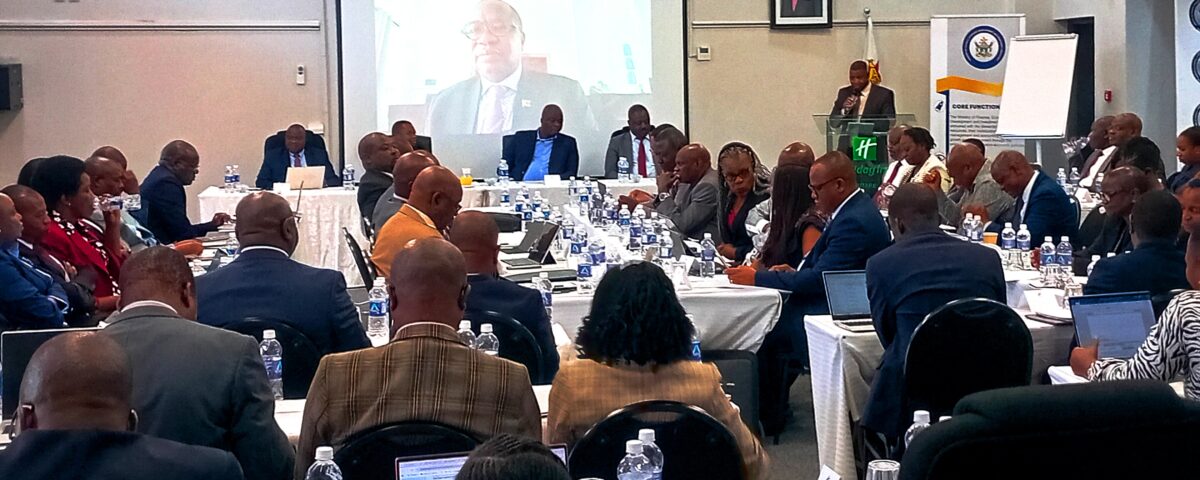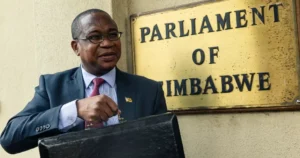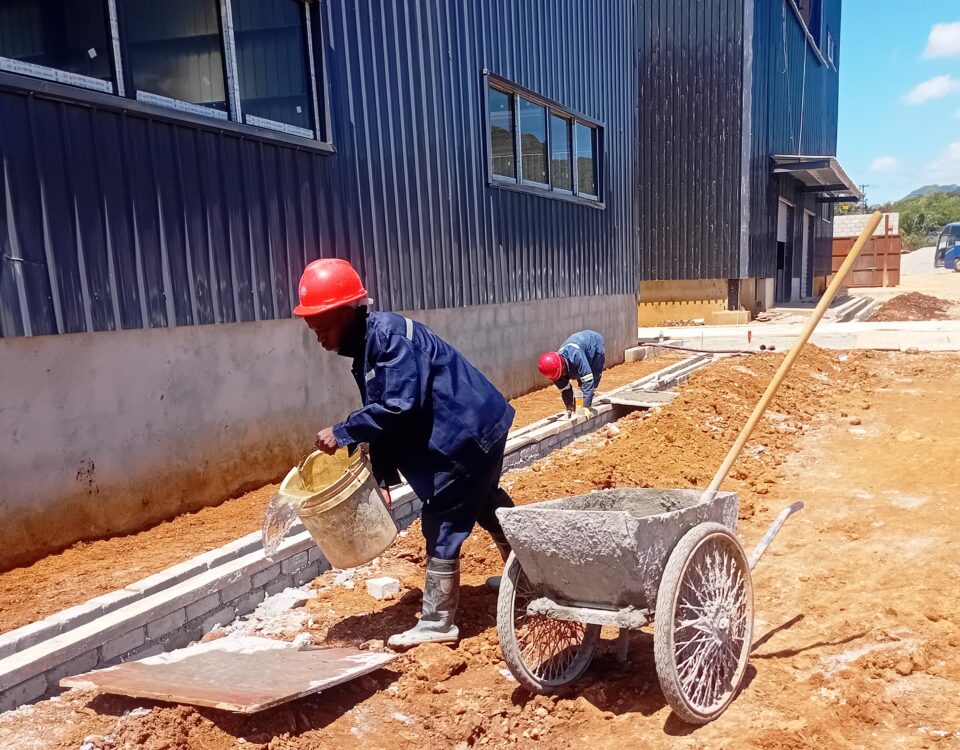
City of Mutare goes door to door for 2026 Budget consultation input
October 31, 2025
Shape up or ship out says Mangwana to State media entities
November 6, 2025Finance Minister goes for broke in 2026, hints on no tax hikes and raft measures in his forthcoming National Budget announcement

Finance, Economic Development and Investment Promotion Minister Professor Mthuli Ncube giving his official opening remarks online at his Ministry’s Strategic Planning Workshop held in Mutare last week Wednesday.
Ngoni Dapira
THE Finance, Economic Development and Investment Promotion Minister Professor Mthuli Ncube has hinted on no tax increments in 2026 ahead of his much anticipated 2026 National Budget which is expected before the end the year, Easterntimeszim has learnt.
He said this last week Wednesday in his opening remarks at his Ministry’s Strategic Planning Workshop held in Mutare. Addressing delegates online, the Finance Minister said the Ministry of Finance as the lead Ministry has a huge role of driving sustainable national economic and social development.

Finance Minister Prof Mthuli Ncube.
Speaking on national resource mobilisation he said it is a very critical area that his Ministry has to keep improving and innovating on to achieve vision 2030 of an upper middle income society and economy.
“Let me also say this before the budget announcement, I won’t increase any taxes. Let it be a year (2026) of no tax changes if we can help it, creating stability and collect more from what we have already pronounced on,” said the Finance Minister who apologised for his absence to attend to an important government meeting in Angola on behalf of President Emmerson Mnangagwa.
His insight comes on the heels of the Ease of Doing Business and Regulatory Fees Reforms for all sectors pronounced by Government in September. To-date it has announced reforms for the Livestock, Tourism, Transport, Wholesale and Retail sectors.
Min Ncube said the reforms aim to remove duplication and streamline approvals as well as simplify regulatory processes for small and medium enterprises (SMEs) and formal businesses that operate under one roof with multiple lines — such as bakeries, butcheries, restaurants, takeaways, and food factories.
Previously, some businesses were paying as much as US$2300 for a food factory licence alone.
The Finance Minister thanked the Zimbabwe Revenue Authority (Zimra) for the successful blitz programme on illicit imports this year, but called on it to also start a blitz on illegal exports.
“Thank you Zimra for the successful blitz on illicit goods into the country but we need to turn the gun towards the exports as there are also illicit activities on the exports side where again we are not maximising revenue on what is exported. But I think on imports we have a good system now,” said Min Ncube.
He admitted that low private sector confidence slowed down investment, hampering service delivery at a time when Government is emphasising Public Private Partnerships (PPPs) as it embarks on economy wide policy reforms, but underscored that raft measures are being implemented to turnaround the economic impasse.
Min Ncube added that there is need for government as a whole to take cues on how to address these economic impediments as it transitions and strategically aligns into the National Development Strategy (NDS) 2 next year.
“You may be aware that Cabinet has approved the priorities that will shape the National Development Strategy 2 (NDS2) for 2026–2030, therefore, our 2026 budget strategy must align fiscal policy to those priorities. These priorities were formally endorsed as the successor to NDS1 and will guide our medium-term actions,” he said.
Min Ncube said he intends to strengthen the Public Entities Corporate Governance Framework to ensure that boards and executives are held accountable for results.
“Financial self-sustainability, operational efficiency and transparency must be non-negotiable. We will strengthen the Public Entities Corporate Governance Framework to ensure that boards and executives are held accountable for results. Our people expect results that transform livelihoods and restore confidence in public institutions,” said the Finance Minister.
Adding, “To our State-Owned Enterprises and Parastatals, I must emphasise that you are the implementation backbone of Government policy. Your performance directly impacts fiscal sustainability, economic growth and service delivery. Going forward, each enterprise must anchor its corporate strategy to NDS2 outcomes, guided by the Integrated Results-Based Management (IRBM) principles.”
He said under NDS 1 the macroeconomic fundamentals showed resilience, with gross domestic product growth averaging above 5 percent between 2021 and 2024, moderate inflationary pressures and fiscal consolidation efforts that yielded improved expenditure discipline.
“As we prepare for NDS2, our focus must shift from stabilisation to structural transformation… However, we are diligently working to ensure exchange rate stability and manage climate-related shocks, address limited industrial competitiveness and governance inefficiencies in some public enterprises,” said the Finance Minister.
Adding, “Planning is crucial for the prioritisation, successful coordination and timely execution of flagship projects and public service delivery against a backdrop of off-balance-sheet contingent liabilities and constrained fiscal space for capital projects despite improved budget strategy alignment.”


